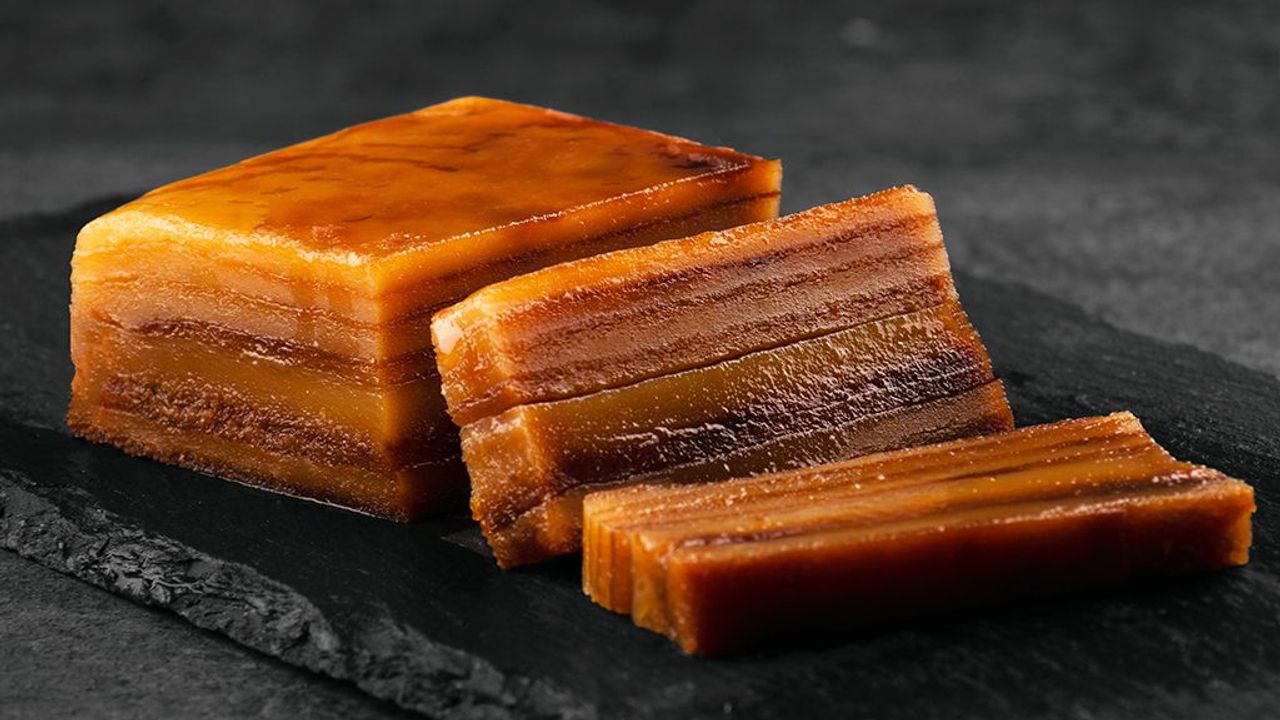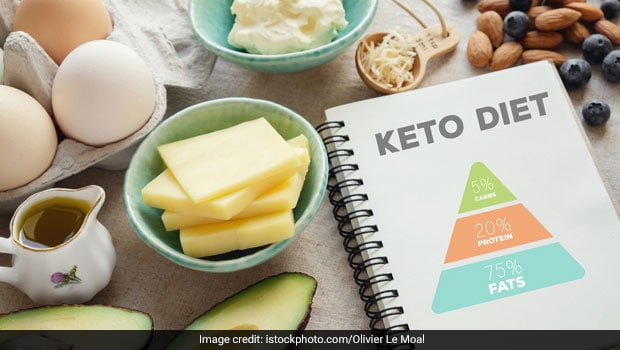As we step into the New Year, we are all looking for that one wonder diet that can take care of our weight woes. There are various fad diets in the market that claim quick weight loss and we quite often end up trying them all in the hope that something may work. However, the efficacy of these diets still remains debatable as various diets may work for some people and not for others.
Well, let's look at some popular diets of 2018 and how effective they can be.
1. Whole 30 - What Is It?
This diet program encourages you to eat whole fresh foods while avoiding some common food items. It is described as a clean eating program. Whole 30 diet was co-created by Melissa Hartwig, who explains that certain food groups may be causing health problems. In her words, "Eliminate the most common craving-inducing, blood sugar-disrupting, gut-damaging, inflammatory food groups for a full 30 days." In whole 30 diet, one has to eat meat, fish, and eggs in moderation, lots of vegetables, a little amount of fruits and plenty of natural fats along with all-fresh spices and seasonings. It tells you to delete added sugars, alcohol, grains (even the whole ones), legumes, dairy, junk food, and baked products from your diet for 30 days. Another rule is to stay away from the weighing scale for 30 days. Yes, you read that right. Do not step on weighing scale for 30 days as this diet claims that following this will help you lose weight but more importantly improve health conditions like digestion. Apart from this, it may boost your energy levels, improve your skin and sleep quality. After 30 days, it is recommended that you reintroduce all the banned food groups one at a time and use them only once or twice a week.
My Take: The diet does describe a detox diet and it will deliver what it says. It uses fresh food, so will do your body good. It seems to be a variant of the FODMAP diet, not very original. Nutritionally, I have a problem with diets that eliminate whole food groups; each has amazing health benefits and unless proven, should not be omitted. Whole grains are a treasure trove of health benefits and cannot be clubbed with refined grains and sugars. Saturated fats in abundance are not recommended and there is conclusive evidence for the same. Another point is that with both dairy and legumes out, what do vegetarians eat?
Recommendation: It is okay for a detox occasionally, but cannot be followed for a lifetime.
2. Low FODMAP - What Is It?
FODMAP is an acronym for Fermentable Oligo-, Di-, Mono-saccharides And Polyols, which are basically sugars that are poorly absorbed by the intestines and hence lead to abdominal discomfort like gas, distention, and constipation etc., further leading to irritable bowel syndrome. IBS is not an inflammatory disorder but a functional disorder, which is not caused by FODMAP foods but symptoms are relieved by this diet. This is a diet which has been developed by MONASH University for diagnosed cases of IBS and is meant to be administered under strict professional guidance. A three-step program, it involves a 2-6 week swap for high FODMAP foods with low FODMAPs, which include all food groups. Step 2 involves reintroduction of FODMAPs, one at a time, over a three-day period and gradually increasing the serving size according to tolerance; this phase lasts from 8-12 weeks. The third step is personalisation, which means that you now understand which FODMAPs suit you and which ones aggravate your symptoms.
My Take: This is a research-based diet for a diagnosed medical problem and was never meant as a weight management program. People on FODMAPs may lose weight as a result of better digestion and gut health, but some may even put on weight. Somewhere along the way it became a popular diet for weight management which is incorrect. Just a few symptoms do not indicate that you may be suffering from IBS, your doctor will take you through specific tests to diagnose it and rule out some other serious condition.
Recommendation: FODMAP is to be administered only under the care of a trained Nutritionist/Dietician after proper medical workup and is not for weight management.
3. Flexitarian Diet - What Is It?
As the name suggests, it is a flexible and a vegetarian diet combination developed by Dietician Dawn Jackson Blatner. It is based on including all the benefits of eating vegetarian food and using animal products in moderation. It is a 5-week plan, which provides recipes for all major meals. Breakfast is of 300Kcal, lunch is of 400Kcal and dinner is of 500Kcal with two snacks of 150Kcal each totalling to 1500Kcal. This is a diet all about changing your lifestyle. This diet limits the intake of sugar and processed foods emphasising on fresh whole foods. In this diet, you will have to minimise consumption of processed meats, refined carbs, added sugar and sweets, fast foods etc. This diet recommends eating mostly vegetables, fruits, whole grains and legumes and limiting meat intakes to specific amounts per week. It also recommends at least 30 minutes of workout daily.
My Take: It sounds healthy and doable because it doesn't restrict your choices; it just teaches you how to make better ones. All foods are natural and easy-to-procure. This is the healthy way to eat anyways; fresh, wholesome with lots of vegetables and whole fruits, nuts and seeds added for additional health benefits. All healthcare providers have always recommended a low-processed food, low-added sugar diet. Vegetarian food has been scientifically linked to a lowered incidence of diabetes, cancers and cardiac diseases, so this diet is a well-balanced healthy way of eating. It is credited with weight loss, probably because of a change for the better. For an avid non-vegetarian who doesn't normally include vegetables and fruits in the diet, this would definitely help get a better lifestyle and also lose weight.
Recommendations: If you are a non-vegetarian with no concept of eating vegetables, whole grains and fruits, get on to this immediately, and you will lose weight. Only problem is that I haven't seen an Indian food version of the menus. For the other half, you will learn how to eat healthy and it would be an important part of better health with moderate weight loss.
4. Intermittent Fasting - What Is It?
It is basically fasting for a number of hours and eating for a certain number of hours a day. There are different variants of this plan, like 16/8 diet, wherein you choose the 8 hours you wish to eat in and then don't eat anything for the next 16 hours. So if you choose to eat between 12pm and 8pm, you get to eat your lunch, snack and an early dinner. Intermittent fasting lets you choose the duration and frequency of fasting. You can choose 2-3 days a week of complete fasting or 12 hours eating and 12 fasting, whatever suits you. It is recommended that you start slow and then build on it as your body allows. The principle behind this is reducing insulin resistance. When our food is loaded with sugars and made up of refined grains and processed food, our insulin levels remain high forever, encouraging fat deposition and increased levels of hormones like cortisol. In a state of fasting, the insulin levels fall, giving the body rest.
My Take: We have known fasting for centuries. In our homes we have grown up with family members fasting on various days and occasions like Karvachauth, Ramzan, Navratri etc. The problem is that we have converted these to feasts; if you see each of these has very clear cut instructions for eating, which are actually healthy. So is it a good way to lose weight, provided you don't go overboard eating the wrong foods in humungous amounts. It's actually nice because you eat at fixed times and then drink only water or black tea and coffee during the fasting hours.
Recommendation: Start slow, women need to be careful. If you choose to fast for whole days, then do not do so for more than 1 day to start with. The 16/8 diet is a better deal.
5. Carb Cycling - What Is It?
As the name suggests, it is cycling carbs by eating more of them on some days and reducing the quantity on others. It is a popular strategy among athletes and has been found to be beneficial for weight management and muscle building. Calorific intake may be increased on high-carb days and reduced on low-carb days. You can tailor it to suit your needs. Carbs recommended are whole grains. Refined carbs and sugars are still a no. High-carb days may include 200-300g of carbs and low-carb days may be anywhere between 75-150g.
My Take: Carb cycling has shown a number of benefits; the most important one being that it speeds up weight loss while preserving muscle mass. It also keeps your metabolism rate intact. It encourages more of plant-based food intake, which is healthy and may reduce hormonal imbalances and blood sugar fluctuations. Carb cycling is also easy-to-follow for long periods as it is not restrictive; it doesn't deprive you. If combined correctly with adequate protein intakes, veggies and healthy fats, it is actually a good way to eat.
Recommendations: Go for it but ease into it gradually. Take the help of a professional who can help you learn how to do so right. If you feel tired, or experience constipation, bloating or are unable to work out because of weakness, then this is not for you.
There is no one size that fits all, so when you start on a new plan, go for the one that is a healthy way of eating, is sustainable and fits your lifestyle. When you choose one, stick to it for at least 3 months before knowing whether it works for you or not.
Eat healthy, sleep well and exercise a lot. Wishing you all a very happy and healthy New Year 2019!
Disclaimer:
The opinions expressed within this article are the personal opinions of the author. NDTV is not responsible for the accuracy, completeness, suitability, or validity of any information on this article. All information is provided on an as-is basis. The information, facts or opinions appearing in the article do not reflect the views of NDTV and NDTV does not assume any responsibility or liability for the same.
About Rupali DattaRupali Datta is a Clinical Nutritionist and has worked in leading corporate hospitals. She has created and lead teams of professionals to deliver clinical solutions for patients across all medical specialties including critical care. She is a member of the Indian Dietetic Association and Indian Association of Parenteral and Enteral Nutrition.














